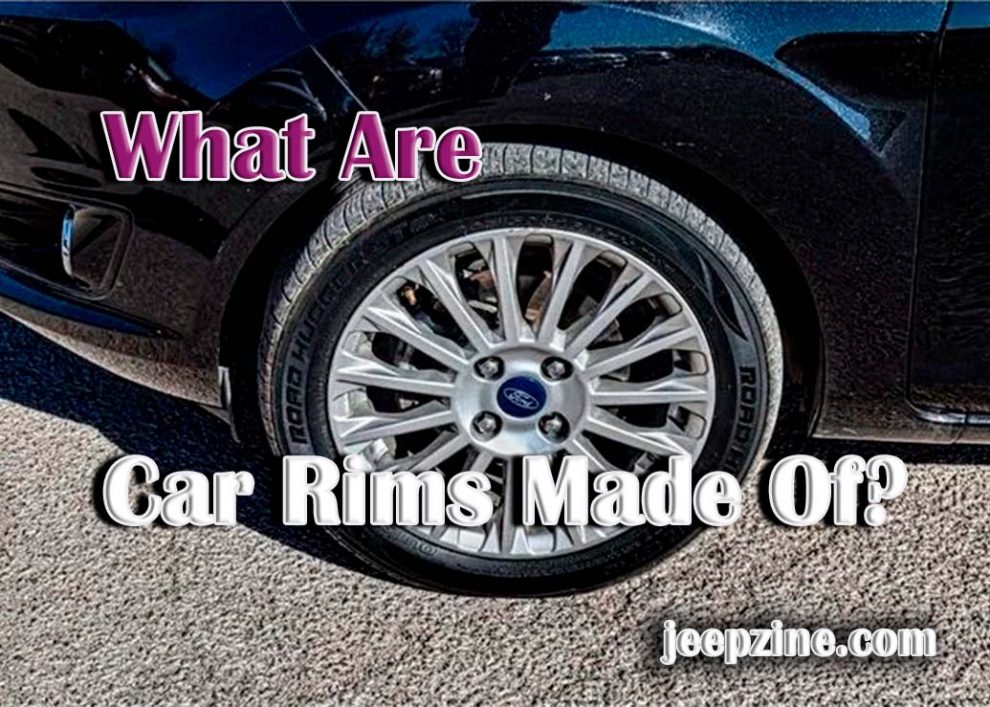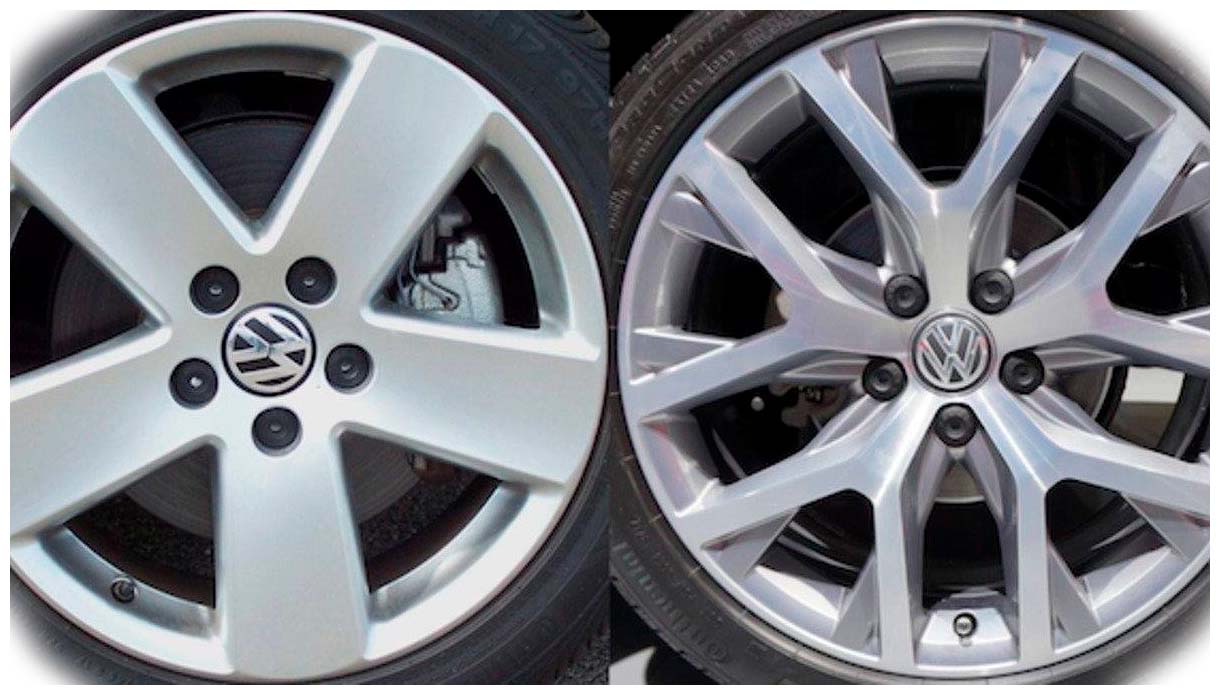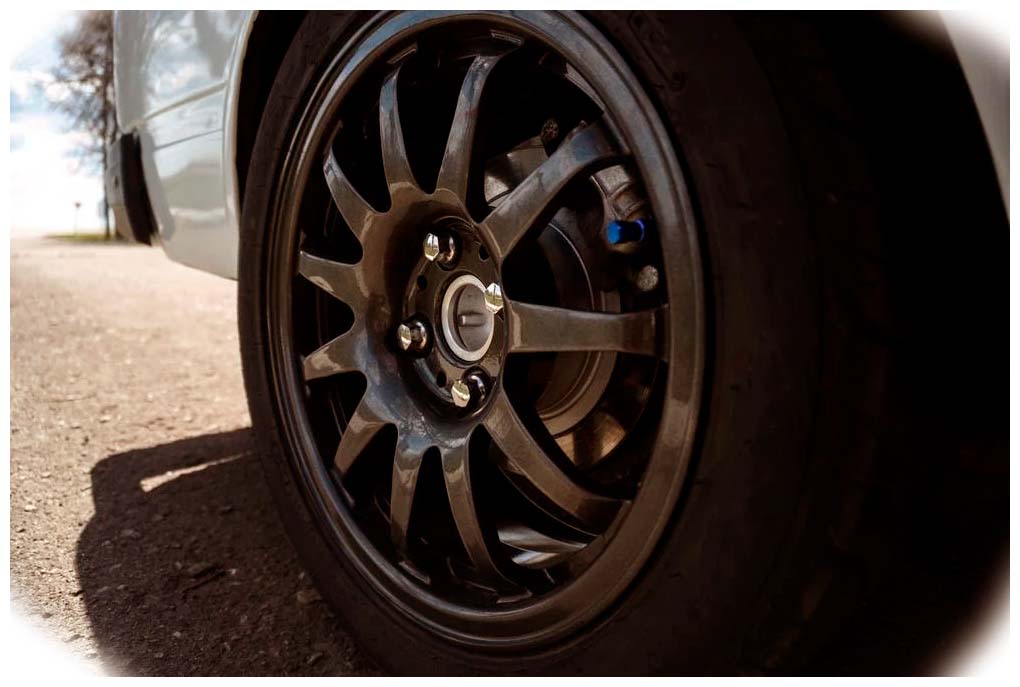Car rims, also known as wheels, are an integral part of a vehicle. The rims provide stability to the vehicle and support its weight as it moves along the road. Wheels are commonly made of various types of materials which include steel, magnesium alloy, aluminum alloy, carbon fiber composites and titanium alloy. Each type of material has its advantages and disadvantages that should be taken into consideration before deciding which one is best for your car.
Common Types of Car Rims & Materials Used to Make Them
Choosing the right car rim material can significantly impact a vehicle’s performance, durability, and cost.
-
Steel Wheels & Steel Alloy Wheels
Steel wheels are the most common type of car rims and are made from a combination of steel and other metals such as iron, chromium, and nickel. Steel wheels offer great durability and strength but can be quite heavy when compared to other types of car rims. They are usually very affordable in cost but may require more frequent maintenance than other options. Also read here How to Clean Chrome Rims. -
Magnesium Alloy Wheels
Magnesium alloy wheels are lighter than steel wheels, making the vehicle more fuel-efficient and easier to handle due to the decreased weight. These wheels also provide improved steering control since they can absorb more vibrations from the road surface which ultimately gives an overall smoother ride experience for drivers. The downside is that these types of rims tend to be significantly more expensive compared to steel or aluminum alloy options. -
Aluminum Alloy Wheels
Aluminum alloy wheels offer a great balance between performance and cost while providing a lightweight alternative compared to steel rims that still maintains good durability and strength characteristics on the roadway surface. This type of material is also non-corrosive meaning it won’t rust or corrode over time and can withstand extreme weather conditions. -
Carbon Fiber Composites
Carbon fiber composite wheels are made from a combination of carbon fiber and resin and are incredibly lightweight, making them very popular for racing. This material is extremely durable and oftentimes more expensive than other types of rims but is well worth the cost if you plan to use your vehicle in competitive settings or for performance driving. -
Titanium Alloy Wheels
Titanium alloy wheels provide superior strength and durability compared to other materials while also being lightweight which can improve the overall performance of a vehicle. However, they tend to be quite expensive due to the cost associated with using titanium in production processes, so these are typically reserved for luxury vehicles or specialty racing applications.
Benefits of Different Types of Car Rims
Each type of car rim material has its unique benefits that should be taken into consideration when selecting a rim that best suits your needs and budget. Steel wheels offer great durability and strength while magnesium alloy rims provide improved steering control as well as better fuel efficiency due to their lightweight construction. Aluminum alloy rims offer an excellent balance between performance characteristics and affordability, while carbon fiber composite and titanium alloy rims are more expensive but provide superior strength, durability, and weight savings.
To ensure optimal performance and safety with your chosen type of car rim, it is crucial to properly manage tire pressure. An air pump is an essential tool in this process. However, be cautious when inflating or deflating your tires, as improper tire pressure can lead to decreased fuel efficiency, compromised handling, and even increased risk of tire failure. Also, read how using an air pump deflating tire can assist you in maintaining the correct tire pressure for your vehicle, and don’t forget to regularly inspect your tires and rims for any signs of damage or wear.
Conclusion
Car rims are an important component of a vehicle, providing stability and support to the entire system as well as contributing to performance characteristics such as fuel efficiency and handling. There are many different types of materials used to construct car rims, each with its unique benefits that need to be taken into consideration before selecting one that best suits your needs. Steel, magnesium alloy, aluminum alloy, carbon fiber composite and titanium alloy are all popular materials used to create car rims and it is important to understand the advantages of each before selecting a material for your vehicle.


 Steel Wheels & Steel Alloy Wheels
Steel Wheels & Steel Alloy Wheels Titanium Alloy Wheels
Titanium Alloy Wheels
Add Comment